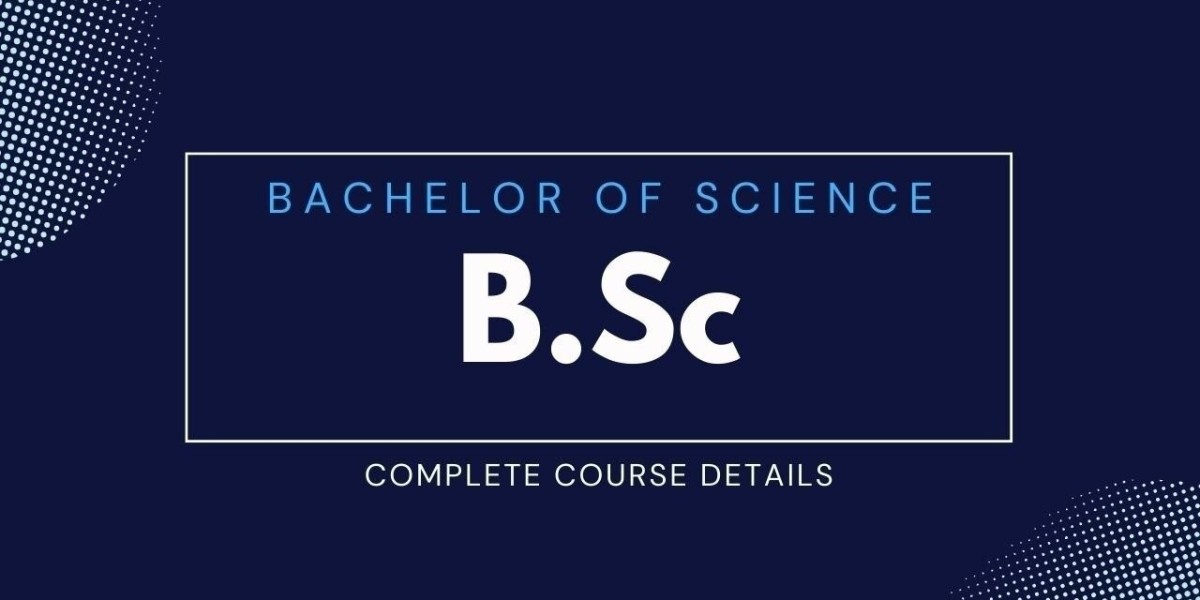What Is BSc? Exploring the Bachelor of Science Program and Its Career Potential
In the rapidly evolving world of education and professional opportunities, the Bachelor of Science (BSc) stands out as a foundational degree for students passionate about science, technology, and innovation. This article delves into the BSc full form, its program structure, potential specializations, and career opportunities, offering a detailed guide for prospective students aiming to make informed decisions about their academic and professional paths.
Understanding the BSc Full Form
The full form of BSc is Bachelor of Science. It is a globally recognized undergraduate degree program designed to provide students with in-depth knowledge and practical skills in various scientific fields. Typically spanning three to four years, the program balances theoretical learning with practical applications, preparing graduates for diverse roles in academia, research, and industry.
The BSc program caters to a wide range of interests, allowing students to specialize in disciplines such as physics, chemistry, biology, mathematics, environmental science, and computer science. Its versatile structure ensures that graduates are equipped to tackle the challenges of an increasingly scientific and technological world.
Structure of the BSc Program
A BSc program generally follows a semester-based system and includes a combination of core, elective, and practical courses. This structure ensures a comprehensive education while allowing for specialization in areas of interest. Here’s a closer look at its components:
Core Subjects
Core subjects form the backbone of the BSc program, providing foundational knowledge essential for any specialization. Examples include:
Physics: Mechanics, thermodynamics, and quantum physics.
Chemistry: Organic, inorganic, and physical chemistry.
Biology: Cell biology, genetics, and ecology.
Mathematics: Calculus, algebra, and statistics.
Elective Subjects
Elective subjects allow students to tailor their education according to their interests and career goals. Options may include:
Computer Science.
Environmental Science.
Biotechnology.
Astronomy.
Practical and Laboratory Work
Laboratory sessions and hands-on projects are integral to the BSc curriculum, fostering practical skills and experimental techniques. These activities complement theoretical learning, enabling students to apply concepts in real-world scenarios.
Research Projects
Many BSc programs include minor and major research projects, encouraging students to explore scientific questions and develop innovative solutions. These projects often serve as stepping stones for advanced research or professional roles.
Specializations in BSc
One of the key strengths of the BSc degree is its flexibility in offering various specializations. Here are some of the most popular fields:
BSc in Computer Science
Focus: Programming, algorithms, and software development.
Careers: Software engineer, data scientist, IT consultant.
BSc in Biotechnology
Focus: Genetic engineering, microbiology, and bioinformatics.
Careers: Biotechnologist, research scientist, lab technician.
BSc in Environmental Science
Focus: Ecosystems, sustainability, and pollution control.
Careers: Environmental consultant, conservationist, policy advisor.
BSc in Mathematics
Focus: Pure and applied mathematics, statistics, and computational analysis.
Careers: Mathematician, statistician, financial analyst.
BSc in Nursing
Focus: Healthcare systems, patient care, and medical science.
Careers: Registered nurse, healthcare administrator, clinical researcher.
BSc in Physics
Focus: Theoretical and experimental physics, astronomy, and material science.
Careers: Physicist, engineer, educator.
Why Pursue a BSc Degree?
Students often choose a BSc degree for its unique combination of breadth and depth in scientific education. Here are some reasons to consider this program:
Diverse Opportunities: A BSc degree opens doors to multiple career paths, from research to industry roles.
Skill Development: Enhances analytical thinking, problem-solving, and technical skills.
Pathway to Higher Education: Serves as a foundation for postgraduate studies like MSc, PhD, or professional programs.
Global Recognition: Accepted by universities and employers worldwide.
Career Opportunities After BSc
The BSc program prepares graduates for various roles in science, technology, and allied sectors. Here are some popular career options:
1. Research Scientist
Role: Conducting experiments and contributing to scientific advancements.
Fields: Physics, chemistry, biology, or environmental science.
2. Data Analyst
Role: Interpreting data to support business or research decisions.
Fields: IT, healthcare, finance, and marketing.
3. Educator
Role: Teaching at schools or colleges.
Subjects: Mathematics, physics, biology, or chemistry.
4. Environmental Consultant
Role: Advising organizations on environmental practices and policies.
Focus: Sustainability, conservation, and regulatory compliance.
5. Healthcare Professional
Role: Working in medical laboratories, hospitals, or research facilities.
Fields: Nursing, biotechnology, or clinical research.
Higher Studies After BSc
For those looking to specialize further, a BSc degree provides a strong foundation for advanced education. Some popular options include:
Master of Science (MSc): Specialize in a chosen scientific discipline.
Master of Computer Applications (MCA): For those interested in IT and software development.
PhD: Pursue in-depth research in a specific field.
MBA: Combine scientific expertise with business management skills.
Challenges of a BSc Program
While a BSc degree offers numerous advantages, it also comes with challenges:
Intensive Curriculum: Requires dedication and time management to master complex concepts.
Practical Application: Bridging the gap between theoretical knowledge and industry needs can be demanding.
Competitive Job Market: Standing out among a growing pool of science graduates can be challenging.
Future Trends in Science and Technology
As science and technology continue to advance, BSc graduates must stay abreast of emerging trends to remain relevant. Key areas of growth include:
Artificial Intelligence (AI) and Machine Learning (ML): Transforming industries through automation and predictive analytics.
Sustainable Technologies: Driving innovation in renewable energy and conservation.
Biotechnology and Genomics: Advancing healthcare and agricultural solutions.
Space Exploration: Expanding opportunities in astrophysics and space technology.
Conclusion
The Bachelor of Science (BSc Full Form) is a versatile and comprehensive undergraduate program that equips students with the knowledge and skills needed to excel in various scientific domains. Whether pursuing a career in research, industry, or education, BSc graduates are well-prepared to contribute to the advancements of science and technology.
In conclusion, the BSc degree is more than just an academic qualification; it is a gateway to innovation, discovery, and professional success. With its diverse specializations and career paths, the BSc program offers aspiring scientists and professionals the tools to make a significant impact in their chosen fields.



